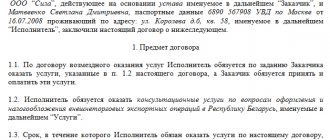Testator's rights
Through inheritance, freedom to dispose of one's own property is exercised. The peculiarity is the ability to determine who becomes the successor after death. That is, the testator has the right to indicate a number of representatives who will assume the rights of the owner based on the results of the inheritance case initiated by the notary. Nominating applicants is not the only freedom.
But if there may be several heirs, you need to know whether wills are allowed to be made by two or more citizens in the form of one document. This feature is limited. Contradictions arise:
- There cannot be representatives on the part of the testators, and the paper is drawn up individually.
- Handwritten text and an original signature that must be notarized are required. Only the legal, official owner can draw up a will.
- Two testators, by their presence, violate the listed requirements, since the second representative of the family cannot make decisions regarding property that does not belong to him.
However, there is an exception that states that spouses can appear before the notary together and leave an inheritance to the child. But filing a will through a representative is still not allowed. Moreover, such a document loses legal force after being declared invalid. Drawing up a will by a trustee is permissible only if a specialized lawyer is involved in the procedure. But the representative’s assistance in this case consists only of consulting services.
How to draw up a will for an apartment
During his life, the testator may freely live in the apartment bequeathed to another person or group of persons. A will can be rewritten several times . Only the latest edition , certified by a notary or having the signatures of at least two witnesses to its composition, will have legal force But it is better to have the document signed by a notary as soon as possible!
If it is proven that the person at the time of drawing up and signing the document was under pressure from third parties, was incapacitated or weak-willed, the notary will be held accountable .
Certification of a document by a notary
This is a mandatory requirement. The notary is the guarantor that the expression of will was drawn up without violations. The signature and seal indicate that:
- The will was drawn up in person, without representatives interfering in the process.
- No one dictated the terms, convinced the testator, or persuaded him to change his decisions.
- The testator was of a clear mind, that is, he was legally capable.
- The conditions specified in the text do not contradict current legislation.
- Only personal property belonging to the will-maker is transferred.
- The lists of persons listed as successors do not include citizens with a ban on accepting an inheritance.
The notary also confirms the age of majority of the person expressing his will. A teenager and a child cannot draw up a will, even if it is requested by official representatives - parents or guardians.
Other persons
Sometimes circumstances arise when it is not physically possible to appear at a notary’s office. So, bedridden people call a notary at home. It is necessary to know whether it is possible to do without it so that the will does not lose force. For this purpose, there is a list of officials with appropriate powers. These are representatives of medical institutions (chief physician).
The head of the department, the attending doctor, nurses and other medical personnel are not included in the list of authorized representatives. Their role is to act as witnesses when making a will. It is in their presence that the will of the property owner is expressed.
They act in a similar way if you have to draw up a document far from populated areas. For example, the ship's captain is the representative of the ship's crew. This also requires witnesses. Upon arrival at the port of destination, the documentation is sent to the notary, where it is stored until opened. And during the announcement, representatives of the heir may be present. The representative of the testator himself is the executor, whose task is to ensure the fairness of the distribution of the inheritance.
Does the age of the testator affect when drawing up a will?
The heirs indicated in the will, in the event of a challenge to the will by other interested parties, will have the main trump card in the form of this conclusion of a commission of specialists made during the life of the testator.
That is why many notaries advise testators not to include too complex and contradictory conditions in the text of the will, which may cause the document to be contested and fully or partially declared illegal. Let's consider specific examples of testamentary dispositions with conditions: Tikhonov R.D.
Who can leave a will?
Even a guardian cannot be the compiler. Only text written in the testator's own hand is allowed. But this is not the only requirement put forward for owners who want to inherit their property. Wills are drawn up:
- Competent persons who do not have chronic mental or nervous diseases.
- People who are not experiencing a period of temporary incapacity. Drug and alcohol intoxication is unacceptable.
- Adults. Only those who are over 18 years of age are encouraged to sign. The exception is the emancipated.
- Teenagers from 14 to 18 years old. Such a citizen can make a will without representatives if he is married, has children, a permanent job and income.
- Sole owners of objects of inheritance. Equity participation implies that the will indicates the share due.
Citizenship and nationality do not matter. But, if the testator or heir is a citizen of another state, the representatives will not help. Only personal presence is required.
What rights does the testator have?
When drawing up a will in the presence of representatives of authorized bodies, it should be understood that freedom of expression presupposes the possibility of:
- Transfer ownership of any things, real estate, transport, securities and deposits.
- Appoint the main legal successors without limiting the range of entities (individuals, legal entities, government agencies).
- Determine sub-designated heirs who will take over ownership if the primary heirs die or refuse.
- Require the successor to pay debts and care for pets and dependents.
- Indicate additional conditions, for example, the requirement to get married, have a child, refuse to marry, etc.
You can write anything you want in a will, as long as it does not contradict current legislation. The main thing is that the testator has full legal capacity at the time of making the testator. Another requirement is that orders must not infringe on the rights and freedoms of third parties.
2.1. Concept and legal nature of a willThe institution of inheritance by will has undergone major changes compared to the previously existing inheritance legislation. In accordance with paragraph 5 of Art. 1118 of the Civil Code of the Russian Federation, a will is a unilateral transaction that creates rights and obligations after the opening of an inheritance. From this norm it is clear that the legislator defined only the legal nature of a will, without disclosing the definition of the concept “will”, while the interpretations of this term present in the legal literature allow us to talk about two possible emphases in the definition of the concept “will”: the characteristics of a will, with one on the one hand, as an act of expression of will on the part of the testator, his personal order in the event of death, and on the other hand, on defining it primarily as a document through which a citizen can determine the fate of his property after his death, independently appointing his heirs. The main purpose of a will is to determine the procedure for transferring all or part of the inherited property to certain persons (individuals or legal entities), as well as to public legal entities (Russian Federation, constituent entities of the Russian Federation, municipalities, foreign states and international organizations) . By virtue of paragraph 1 of Art. 1118 of the Civil Code of the Russian Federation, a citizen can dispose of his property in the event of death only by drawing up a will in compliance with all requirements established by law for this document. It should be noted, however, that not every order drawn up in the event of death is a will. For example, a life insurance contract in favor of a third party is also an order of a citizen (the policyholder) in the event of death, but it cannot be recognized as a will, since the policyholder does not dispose of his own property, but of such property, the right to which arises only after his death, and therefore cannot belong to during the lifetime of the testator himself. A gift agreement executed by a citizen according to the rules of Art. 572 of the Civil Code of the Russian Federation. According to paragraph 3 of Art. 572 of the Civil Code of the Russian Federation, an agreement providing for the transfer of a gift to the donee after the death of the donor is void. Consequently, any contracts and agreements of the testator that affect the disposal of property in the event of death, but other than the will, are void. The main content of the will is the disposition of the property, indicating which of the heirs and in what order it is transferred. At the same time, one of the most important requirements for the contents of a will is the legality of the testator’s orders. So, for example, a testator can dispose of property that is part of the common property only within the limits of his rights (even if this property was fully indicated in the text of the will). It is interesting to note that Shershenevich G.F. defined the legality of the content of the will expressed in a testamentary disposition as an internal condition of the validity of the will, “just as compliance with the established form is an external condition of validity.” The subject of a testamentary disposition can be, first of all, any property already owned by the testator or only supposed. A will may also contain orders of a non-property nature (for example, about the location of a funeral). However, the testator cannot stipulate in the will restrictions on the rights of the heir in the subsequent disposal of the inherited property. If the death disposition does not contain any property provisions at all, it cannot be considered a will. A completed will, whatever its content, does not in itself give rise to any inheritance legal relationship. It acts only as a primary legal fact, which, in combination with another legal fact - the opening of an inheritance - leads to the emergence of an inheritance legal relationship: the heirs under the will are called to inherit. A will can only be made on behalf of one person. So, in accordance with paragraph 4 of Art. 1118 of the Civil Code of the Russian Federation, a will may contain orders of only one citizen. The execution of a will by two or more citizens is not allowed, since otherwise it will be declared invalid. A citizen can only bequeath his property. However, this does not mean that even when certifying a will, a notary has the right to demand documents confirming the testator’s ownership of a particular thing. The validity of the will in this part is determined only at the time of opening of the inheritance. So, for example, if, among other things, a car was included in the will, which the testator subsequently sold, the car, of course, will not be included in the estate and will not pass to the heirs. The personal nature of a will as a transaction is also manifested in the fact that its execution through a representative or intermediary acting on the basis of law or by proxy is impossible. This is recorded directly in paragraph 3 of Art. 1118 of the Civil Code of the Russian Federation. In this regard, persons who do not have full legal capacity (concluding ordinary transactions through the actions of a representative), as noted in the legal literature, under no circumstances can be testators - they can transfer the inheritance only to heirs by law. Closely related to the concept of a will are the rights and obligations of a testator, a person who wishes to leave a disposition regarding the fate of his property after his death, as specified in the law. First of all, this concerns the limitation by law of the testator’s freedom of expression. His will, in particular, can only be concluded in a form that will meet the requirements set out in Chapter 62 of the Civil Code of the Russian Federation, that is, it will be concluded in a will of a certain form. According to Russian legislation, only persons who are fully capable, i.e., in particular, those who have reached the age of 18, as well as emancipated minors, have full testamentary legal capacity. However, it should be noted that in the legal literature the opinion was expressed that the marriage of a person under 18 years of age does not give rise to his right to bequeath his property. Thus, Nikityuk P.S., arguing for the expressed point of view, refers to two circumstances. Firstly, in Part 1 of Art. 21 of the Civil Code of the Russian Federation speaks of civil capacity as “the ability of a citizen, through his actions, to acquire civil rights and create civil responsibilities for himself,” which, in comparison with “testamentary capacity as the ability to create rights and obligations in the event of death for others,” is not the same thing. In this case, Barshchevsky M.Yu. quite rightly notes that the argument presented cannot be considered convincing, since it is based on an incorrect, casuistic interpretation of the law. Based on the meaning of Art. 21 of the Civil Code of the Russian Federation, it is necessary to conclude: the legislator meant that from the moment of marriage of a person under 18 years of age, the latter acquires full civil capacity, including, of course, the right to make a will. Secondly, Nikityuk P.S. says that the marriage of a person under 18 years of age does not give rise to his right to vote and be elected, does not change his legal personality from the standpoint of civil procedural law, etc. But it is obvious that the norms of other branches of law do not may be a criterion in this case, if only due to the fact that, firstly, issues of civil capacity and, in particular, the right to make a will, are regulated exclusively by the norms of civil law, and secondly, the right to make a will and the right to elect and be elected compare it is impossible, since they are different sectoral subjective rights. In addition, the analysis of paragraph 2 of Art. 26 of the Civil Code of the Russian Federation, which grants minors the right to dispose of their earnings and stipends, shows that since the concept of “the right to bequeath” is included in the concept of “dispose,” then in relation to the specified property, minors have testamentary legal capacity. Emphasizing the words of Barshchevsky M.Yu., it is unlikely that anyone will object to the transfer of their earnings to minors, for example, to the Russian Peace Foundation or to the account of the orphanage where the teenager was raised. With a different interpretation of the law, it would be difficult to explain why a minor aged 14 to 18 years has the right to get a job, independently receive wages, and dispose of it at his own discretion, but cannot dispose of the same property in the event of his death. The opposite opinion is expressed by Chepiga T.D., who opposes granting minors aged 14 to 18 years the right to make a will. According to her point of view, Art. 26 of the Civil Code of the Russian Federation, establishing the right of a minor to independently dispose of his scholarship or earnings, provides for the possibility of limiting or depriving a minor of this right. Under such conditions, a broad interpretation of the above article cannot be allowed. 26 of the Civil Code of the Russian Federation and recognize the right of minors to bequeath their property acquired at the expense of a salary or scholarship. By discussing the possibility of drawing up wills by persons aged 14 to 18 years, we actually raise the problem of the testamentary legal capacity of minors, which, as we see, has been discussed for a long time in the theory of civil law. However, the arguments of supporters of granting persons under 18 years of age the right to make a will in cases specified by law were not taken into account when creating the third part of the Civil Code of the Russian Federation. It seems that in this matter one should agree with the opinion of Barshchevsky M.Yu., who believes that a minor could be given the right to bequeath funds and property, “the source of accumulation of which is his personal earnings and scholarship, as well as fees from the author of an invention or innovation proposals or other royalties.” At the same time, with regard to property and funds received by minors in other ways (inheritance, donation, etc.), adolescents aged 14 to 18 years should not have freedom of expression, including the right to draw up testamentary dispositions. As for completely incompetent persons, according to the law they cannot make a will. By virtue of Art. 29 of the Civil Code of the Russian Federation, a citizen who “due to a mental disorder cannot understand the meaning of his actions or direct them, may be declared incompetent by the court in the manner established by the civil procedural legislation of the Russian Federation. Guardianship is established over him.” Persons declared legally incompetent cannot make any transactions, including making wills. At the same time, based on the strictly personal nature of the will transaction, a will cannot be certified on behalf of the incapacitated person, even with the consent of the guardian. The question of the possibility of granting testamentary rights to persons who have been judicially recognized as having limited legal capacity remains not fully resolved in the legal literature. Thus, most authors (Gushchin V.V., Vlasov Yu.N., Kalinin V.V., Korneeva I.L., etc.), based on the current legislation, come to the conclusion that partially capable citizens do not have the right to bequeath. According to a number of other authors (Chepiga T.D., Nikityuk P.S., etc.), in domestic legislation one can discern legal grounds that allow one to talk about the possibility for such persons to realize their will and independently dispose of their property in the event of death. These grounds consist, for example, in the fact that a person who abuses alcoholic beverages or narcotic substances is not completely deprived of civil capacity by law, but is only limited in it. Adhering to a similar point of view, Nikityuk P.S. indicates that a person with limited legal capacity can carry out transactions that go beyond everyday life only with the consent of the trustees, and the latter do not have the right to give consent to such a transaction without the prior permission of the guardianship and trusteeship authority (from September 1, 2008, the guardian will not have the right without prior permission the guardianship and trusteeship authority to carry out, and the trustee to give consent to carry out transactions for the alienation, including the exchange or donation of the ward’s property, renting it out, for free use or as a pledge, transactions entailing the renunciation of the rights belonging to the ward, division of his property or allocation of shares from it, as well as any other transactions entailing a decrease in the property of the ward (Clause 2 of Article 37 of the Civil Code of the Russian Federation)). It should be noted that this position is consistent with paragraph 2 of the previously effective resolution of the Plenum of the Supreme Court of the Russian Federation dated May 4, 1990 No. 4 (as amended on December 21, 1993) “On the practice of consideration by the courts of the Russian Federation of cases on limiting the legal capacity of citizens who abuse alcohol drinks or narcotic substances”, where the will was directly indicated in a number of actions, the performance of which by a person who is not fully capable is limited and is not allowed without the consent of the trustee. For my part, I would like to note that this provision indirectly allows that, with the consent of the trustee, a person with limited legal capacity can make a will. The opposite point of view was held by some scientists (Gordon M.V., Dronnikov V.K.), who in their works indicated that the preliminary consent of the trustee, as well as the guardianship and trusteeship authorities, contradicts the personal nature of the will as a transaction. Nikityuk P.S., not agreeing with this point of view, absolutely rightly notes that the bilaterality of a transaction is determined not by the number of persons involved in its completion, but by the presence of agreed expressions of will of two or more persons, which when drawing up a will (even with the consent of the trustee) is not takes place. Moreover, the trustee cannot change the will of the testator; he can either give consent to certify the will or refuse this, and the refusal must be motivated. In accordance with Art. 1119 of the Civil Code of the Russian Federation, as well as under the previously in force Art. 534 of the Civil Code of the RSFSR, the testator has the right to cancel or change the completed will in accordance with the rules of Art. 1130 Civil Code of the Russian Federation. A citizen can do this in two ways. Firstly, you can directly indicate in the text of the will that a certain person is deprived of the right to inheritance. Secondly, when drawing up the text of a will, you can simply not mention this or that heir. However, there is a significant difference between these two methods. Thus, if a person has been deprived of the right to inheritance, then he can no longer lay claim not only to the property that was listed in the will, but also in general to any other inherited property that was not mentioned in the will and therefore distributed in accordance with the rules of inheritance in law. If the person was not mentioned in the will, then the specified person cannot lay claim to the property specified in the will, but at the same time he retains the right to inherit property not specified in the will. However, if the testator made a will using the wording “I bequeath all my property, which by the day of death turns out to belong to me,” then this person falls into the position of that heir who is directly deprived of the right to inheritance. The law also establishes that the testator can not only appoint an heir at his own discretion, but also has the right to indicate in the will another heir in case the heir appointed by him dies before the opening of the inheritance or does not accept it (Part 2 of Article 1121 of the Civil Code of the Russian Federation). This is called “substitution” (substitution). By analyzing the current practice, it is possible to determine cases in which the rule on sub-appointment of an heir takes place, namely: a) if the main heir dies before the opening of the inheritance; b) if he does not accept the inheritance; c) if the main heir is deprived of the right of inheritance in accordance with Art. 1117 of the Civil Code of the Russian Federation as unworthy. The right of the testator to dispose of his property is limited in inheritance law not only by the norms of the Civil Code of the Russian Federation on incomplete or limited legal capacity. This right is also limited on the basis of family law norms obliging parents to support minors or disabled adult children (clause 1 of Article 80, clause 1 of Article 85 of the RF IC), as well as obliging children to support their disabled parents (clause 1 of Art. 87 of the RF IC), obliging spouses to provide mutual maintenance (Art. 89 of the RF IC), as well as equating the voluntary maintenance of other disabled citizens by testators with such an obligation (Art. 1149 of the RF Civil Code). Thus, a will, as a transaction that allows one to determine the legal fate of the testator’s property after his death, is one of the ways to dispose of the property of citizens. This is precisely its main legal meaning. During the life of the testator, the will does not create any obligations between the testator and his heirs. Moreover, the testator can draw up several wills, determining the fate of the same property (for example, an apartment); he can appoint as heirs persons both from among the heirs by law and any other citizens; may, on the contrary, deprive his legal heirs of the right of inheritance; to submit the heir in case of death or rejection of the inheritance by any of the heirs indicated in the will; To impose an obligation of a non-property in nature (testament), etc. Thus, in Russian hereditary law a will is recognized: • civil law transaction; • unilateral transaction; • strictly personal transaction; • unlimited transaction; • Gratuitous transaction.
Is it permissible to make a will through representatives?
Despite the fact that the presence of a representative of the testator is categorically unacceptable, there are situations when it is impossible to act differently. For example, some citizens become very ill, remain paralyzed, or lose limbs. To make a will you must do the following:
- Invite representatives of the notary, a lawyer and two disinterested witnesses.
- Eliminate the possibility of drawing up a will with the involvement of third-party representatives.
- State verbally all the requirements regarding the distribution of the inheritance.
- Do not give the representatives present the opportunity to influence their own decisions.
- Organize audio and video recording of the procedure from start to finish.
- Get those present to provide and state identifying information.
- Entrust the drafting of a will to a single representative - a personal lawyer.
- Make sure that the notary notarizes the paper and attaches audio and video recordings.
- Retain copies of all evidence that representatives have expressed personal commitment.
Regardless of the fact that there is an injury or illness, care must be taken to ensure that the relevant medical report is attached to the documentation. But this is a rare case that rarely occurs in practice.
Will writing form
The legislation does not provide for a unified form. However, there are a number of general requirements that are specified in the Civil Code. A will belongs to the category of unilateral transactions. Therefore, it must have the following mandatory attributes:
- Date and city of the event.
- Details of the notary office.
- Personal information (passport details).
- Identification information about heirs.
- Description of all objects included in the inherited mass.
- Signature of the compiler with transcript (full name).
- Autographs of members of the public (witnesses).
- Notarization (visa certified by a seal).
- Notary registration note.
The completed will is signed and sent to the archive, where it is stored until disclosure. No one has the right to become acquainted with its terms ahead of time. The only exception is representatives of law enforcement agencies, subject to appropriate authorization, as well as archive employees. But these representatives are also obliged to keep secrets. Otherwise, you can demand financial compensation.
How to write a will and where to apply?
Most sources write that it is enough to go to the nearest notary office. This is not entirely true, especially if you live in a big city. For example, in Moscow there are many notaries working in every district and district. And it is important that the heirs easily find the will written by the owner of the property and submit applications to the same office. Therefore, notaries distributed the townspeople according to the first letter of their surname.
Please contact the place of registration. You may want to draw up a will using the services of official notaries at the location of the majority of the inheritance. Registration does not always coincide with the location of the accumulation of inherited real estate. This is also not prohibited. The main inconvenience is the inability to attract representatives who would do this on the basis of a power of attorney, even if it is notarized.
It is highly advisable to enlist the support of a probate lawyer in advance. The notary is not responsible for the content of the document unless it contradicts current laws. A lawyer will help you write down all the conditions so that the will cannot be challenged or declared invalid or void. But even a representative of the bar will not help citizens who do not have legal capacity at the time of drawing up a will. The inheritance will be distributed according to the law among the first priority applicants.
Sample will
The forms and samples published in the public domain are for informational purposes only, but will be a good help. Download the will online, change or add your own requirements, describe your property. That is, create a new document using the sample as an example. But do not send a representative to the notary. Contact us personally. Then the paper acquires legal force and will be indisputable.
Sample will
Size: 123 KB
Cancellation or adjustment of a will
During life, circumstances may arise that require adjustments to be made to the will. Representatives do not have the right to do this. It is necessary to appear in person and write a new declaration of will. Do not make adjustments, but draw up a separate, independent document. This way you can:
- increase or decrease the hereditary mass;
- add or exclude applicants from the list of heirs;
- redistribute inheritance shares;
- disinherit any relative.
Obligatory heirs will enjoy the rights in any case. The interests of minor children are defended by official representatives: parents, guardians. Other outsiders cannot be their representatives.
It should be remembered that a document drawn up subsequently automatically cancels the effect of previous expressions of will if there are overlaps in the list of inherited items. Partial and complete cancellation is possible. But no representatives, including judges, will help unworthy heirs.
Features of a will as a way of disposing of property
A will is the only way to dispose of property after death. If the testator leaves a testamentary document, his property is distributed among legal successors only according to the will of the deceased. An exception is the right of certain categories of heirs to an obligatory share in the inheritance of the Civil Code. The will has a number of features:
- The rights and obligations of legal successors do not arise from the moment of conclusion of the transaction, which is the will, but only after the death of the testator.
- A testamentary disposition is drawn up in writing. A promise to leave property made orally is not considered a will.
- The will of the citizen, which is the will, is certified by a notary. Exceptions include documents drawn up in extreme conditions or in places where it is impossible to meet with a notary. The conditions under which such a testamentary disposition can be equated to a notarized disposition are described in Art. 1127 Civil Code.
- The document is drawn up personally by the testator. If he cannot write a testamentary document on his own, it can be written down by a notary according to the will of the author. Representatives of an incapacitated citizen cannot conclude such a one-sided transaction on his behalf.
- The testator must personally sign the document. If he cannot do this due to physical disabilities, another citizen can sign the paper. The signature is certified by a notary. The document indicates the reasons why the testator was unable to independently certify his will.
- The contents of a testamentary disposition do not need to be disclosed to the heirs until the death of the testator. The person who has drawn up a testamentary document is not obliged to communicate his will to his relatives. The notary and other persons present at the signing of the documentation are obliged to maintain the secrecy of the will until the opening of the inheritance.
- The testator has the right at any time before his death to change the provisions of a unilateral transaction - a will.
- In a will, you can assign obligations to your heirs to perform certain actions. However, the obligations of legal successors must not exceed their share of the inheritance and contradict the law. It is unacceptable to force heirs to take actions that violate their civil rights.
- The testator has the right to hide his will from other persons. A closed transaction is allowed. The notary accepts orders in a sealed envelope. The method of certifying a closed will is described in Art. 1126 of the Civil Code of the Russian Federation.
- Carrying out the will of the deceased is the responsibility of the heirs themselves.
- The transaction represented by the will is urgent. However, it is impossible to indicate in the document the date when it will be realized.
The urgency of the transaction lies in the fact that the rights and obligations of the persons specified in the document will arise from the moment of the death of the author. However, it is impossible to determine the moment when the transaction began, since no one can know the date of his death.
Basic rules for drawing up a will: what form is required?
Free form does not mean that the document is written in any way desired by the will-maker. There are a number of mandatory formal documentation requirements that apply to a will. It is necessary to clearly and specifically indicate the objects of inheritance and successors, assigning each their due share. It makes sense to indicate a document proving the right to own material goods.
The absence of at least one of the required attributes is a reason for declaring the will invalid. Any heir or his representative will be able to obtain the cancellation of the conditions in court and receive the inheritance, even if, according to the terms of the expression of will, he is deprived of this right. To avoid serious mistakes, use samples from the Internet and the help of lawyers. But remember that the participation of representatives is a clear reason for recognizing the document as void.
Legal requirements for the form and content of a will and its revocation
When drawing up a document, the testator must adhere to a number of content requirements. There is no need to describe the prerequisites that served as the reason for making certain decisions. Lyrical digressions in the text are also unacceptable. Language – official, business. If you have an attorney helping you write your will, you do not need to name him or her as your representative. Even if you had to consult a specialist, be guided by your personal aspirations and wishes.
Is there an age limit for making a will?
A difficult situation has arisen, there are two sisters, their mother is 84 years old and has an apartment! The will was drawn up back in the 90s, which stated that the apartment (which their mother actually bequeathed) would be divided in half! The mother is alive, but there are “problems” with her head (she hits the walls with a stick at night, doesn’t remember what happened yesterday, etc., in general, old age is not a joy)! Now one of the sisters is trying in every possible way to cheat the other sister (my grandmother) in order to take this apartment for herself, namely, she wants to take the mother with her and move her son into her apartment and register him there! The mother doesn’t want to go, she’s happy that another daughter (my grandmother) is coming to see her, but the man is old, it might turn out that they won’t even ask, they’ll give me some kind of pill and take me away by force. I won’t allow her to abandon my grandmother for the simple reason that that sister has never helped her mother in her entire life, but then she suddenly came to her senses! My grandmother, whom her own sister actually wants to abandon, every summer she took her mother to her dacha, every New Year and holidays her mother was with her, i.e. they didn’t forget about her and appreciated her, and for the last 3-4 years, every other day she goes to her to feed/wash her, etc. The man is already 84 years old!
As I understand it, the will could not be changed due to the fact that there was no passport, and the will must be drawn up in the presence of both heirs, am I right? If a new one has been compiled, it automatically covers the old one. There is a desire to make a new will, but so that it is final, so that it cannot be changed, I know that a will can be changed at any time, but is it possible to leave it with a notary and receive it only in the presence of both sisters?
What papers are needed to write a will, terms of announcement
It is necessary to prepare for a visit to a notary's office. At this stage, consult with lawyers and collect the necessary documents. If there is no time, then let a representative with a legal education do this work. It is easier to obtain any document if you know where and when to apply. Please remember that some documents have an expiration date. And even an expired passport is invalid.
In addition to your passport, you must have the details of your heirs. This is not necessarily documentation. It is enough to rewrite your passport data without errors. You also need to identify inherited objects. For this purpose, documentation characterizing them is used. You may need an extract from the house register, a vehicle registration certificate, etc. The final list is compiled on a case-by-case basis. The main thing is that the text includes the share belonging to the testator, if he is a co-owner.
Also attached are papers defining ownership (privatization documents, deeds of gift, purchase and sale agreements, etc.). If we are talking about bank deposits, securities, investments of other kinds, the list is further expanded, but each situation is individual and it is extremely difficult to understand without the intervention of representatives with a legal education.
Is there an age limit for making a will?
Money in any currency in bank accounts can be bequeathed more easily. It is permissible to posthumously dispose of money through an order regarding its fate directly at the bank. Such an order is identical to a notarial will.
This is interesting: Minimum Old Age Pension in 2021 in Krasnodar
At the same time, in the code, next to the right of the testator to arbitrarily address the property, there are some restrictions. Again, the purpose of such restrictions is to protect the interests of the author of the will. This is prohibited by law:
Certification of a document by a notary
This requirement is mandatory. If this requires going to a specific notary office, you will have to do it yourself. Representatives are not involved in the preparation of wills. The notary's task is to make sure that the testator himself drew up the text and signed it with his own hand. Without this, the document cannot be used as evidence in court, which will not allow the listed heirs to inherit.
Other persons
If it is not possible to invite a notary, the will will be signed by an authorized person in the presence of independent members of the public. We are talking about the mandatory presence of independent, disinterested witnesses. So, if documentation is drawn up in a clinic, its representative is the chief physician. On a ship, this is the captain of the ship. On the plane, accordingly, the crew commander. At the first opportunity, the declaration of will is delivered to the notary’s office for verification and registration.
Is there an age before which you can make a will?
The child's consent is not required. But you just need to keep in mind that if one child is a minor at the time of the testator’s death, then he will be able to receive a mandatory share in the inheritance, despite the terms of the will.
Write to me in Chat, where we can discuss your situation in more detail. If necessary, you can order from me the production of documents, such as a statement of claim, agreement, claim, etc. If you do not need documents yet, you can contact me for advice.
What happens if the will is not certified by a notary?
Having written a condition (for example, I bequeath all the property to so and so), you need to make sure that the notary certifies the expression of will. Otherwise, it cannot be a sufficient condition for entering into inheritance. Any of the applicants submits a statement of claim and the court declares the paper void. In this case, relatives from the first line participate in the division. If they are absent or unwilling, a second one is connected to the process, then a third one, etc. queue. The final authority is the state, and its representatives are municipal self-government bodies.
Requirements for a will as a transaction
Any documents that are not specifically defined by law can be classified by type, and from a legal point of view, a will should be considered a transaction, and a unilateral one at that. Its simplest definition is that the will of one citizen (documented, of course) is enough to accomplish it.
Conditions that must be met for the transaction to take place:
- It is concluded unilaterally, and this is enough for the document to acquire legal force (clause 5 of Article 1118 of the Civil Code).
- The conclusion does not require the presence or consent of the second party, as well as for amendment or cancellation. The heirs have the right to accept or reject the inheritance; this is a secondary matter. A will of property does not provide for an agreement between two parties, so the actions of the heirs will also be carried out unilaterally.
- It is drawn up in writing and officially certified, i.e. has legal force.
- Done personally by the owner of the property. In any case, personal participation is required; the law does not provide for situations where representatives or proxies of the testator have the right to conclude this transaction without his presence. Also, a document can contain the will of only one person (clause 4 of Article 1118 of the Civil Code).
- The transaction, although urgent, does not have a specific time limit, but will still be executed. It is not correct to classify it as a conditional transaction (when it is unknown whether it will be executed). Cancellation or modification of an act are additional actions that do not change the essence. Until the time comes to open a will, the rights and obligations for the testator do not arise.
Even if circumstances arise that limit the testator’s legal capacity, the document drawn up before their occurrence will still retain legal force. Property acquired after the drafting of the will is also inherited according to its terms, if the wording allows this.
A will may contain certain conditions. For example, the opportunity to use property when the heir reaches a certain age. Or transfer of part of the inherited property to a certain third party.
However, to recognize such a transaction as valid and not subject to challenge, a clear statement of conditions is required that does not allow for ambiguity or absurdity. Otherwise, part of the terms of the will will be annulled in court. A citizen can provide that the appointed heir may refuse the transaction, or die earlier, or will be deprived of inheritance by law (Article 1117 of the Civil Code), and appoint a sub-heir (i.e. the second, following the first).
A controversial feature of a will is that its effect extends only to property available at the time of opening and mentioned in the text of the document. The composition of what is inherited can change significantly. That is, if a citizen bequeathed an apartment and sold it before his death, then this property, of course, will not be inherited. However, this will not in any way affect the execution of other clauses of the act. If, on the contrary, something is discovered that is not specified in the will, then the distribution occurs in accordance with the provisions of the law.
The heir does not have any obligations during the life of the testator; this act is completely gratuitous.
Who else can certify a will besides a notary?
If there is no notary in the city or the working day is over, and the will does not require delay, there are a number of representative persons whose certification is equivalent to a notarial one. The paper is recognized by law if it contains a visa:
- chief physician of the hospital;
- Deputy Chief Physician for Medical Affairs parts;
- doctor on duty at the clinic;
- head of the hospital;
- nursing home directors;
- commander of a military unit;
- head of the correctional colony.
In the event of emergency circumstances, the representative may be a person occupying the highest position of the institution where the will is drawn up. In this case, it makes sense to record video.
If it is possible to save the file on the network, it is better to do so, because the external media may become damaged. Each participant in the procedure personally introduces himself, giving his last name, first name, patronymic, registration and actual residence addresses, date of birth and other identifying information. The testator does the same. After execution, the document is read aloud and signed personally by the testator in front of the camera. This is necessary in case of attempts to challenge the expression of will.
Will with condition
- FULL NAME. testator;
- FULL NAME. heirs;
- FULL NAME. persons who must execute the testamentary refusal.
- List of inherited property, the procedure for its distribution among the heirs;
- Conditions that must be met to receive inherited property.
There is no single, universal sample will with conditions, because the life circumstances and intentions of property owners can be very different. However, each will must contain the following information:
Inheritance by will
In emergency circumstances, a will can be drawn up in simple written form (Article 1129 of the Civil Code of the Russian Federation). A citizen who is in a life-threatening situation and is deprived of the opportunity to make a will in writing and certify it in the proper manner can express his last will in simple written form.
The right to a compulsory share is granted to minor or disabled children of the testator, his disabled spouse and parents, as well as disabled dependents from among the legal heirs who have been dependent on the testator for at least a year. And dependents who were not included in the circle of heirs by law, if they were disabled for at least a year, were dependent on the testator and lived together with him. These persons inherit at least half of the share that would be due to each of them upon inheritance by law. When certifying a will, the notary explains to the testator the rule regarding the obligatory share, about which a note is made on the will.
This is interesting: What is not included in the insurance period for calculating a pension
Restriction of freedom... wills
– Each inheritance case, each will, like any other notarial act, is individual to one degree or another. Therefore, you can obtain more detailed information on an issue of interest by contacting a notary directly, during which, having analyzed a specific situation, the client, together with the help of a notary, will be able to choose which of the options provided for by law will help achieve the goal.
The testator has the right to condition the receipt of the inheritance on a certain legal condition regarding the nature of the heir’s behavior, for example, the heir’s non-abuse of alcoholic beverages or narcotic and psychotropic substances during a certain period from the date of the testator’s death or the absence of penalties against the heir from the competent authorities in relation to his public behavior, etc. .P. Also, the testator has the right to cancel and change the will at any time after its execution, and is not obliged to indicate or inform anyone about the reasons for canceling or changing the will.









